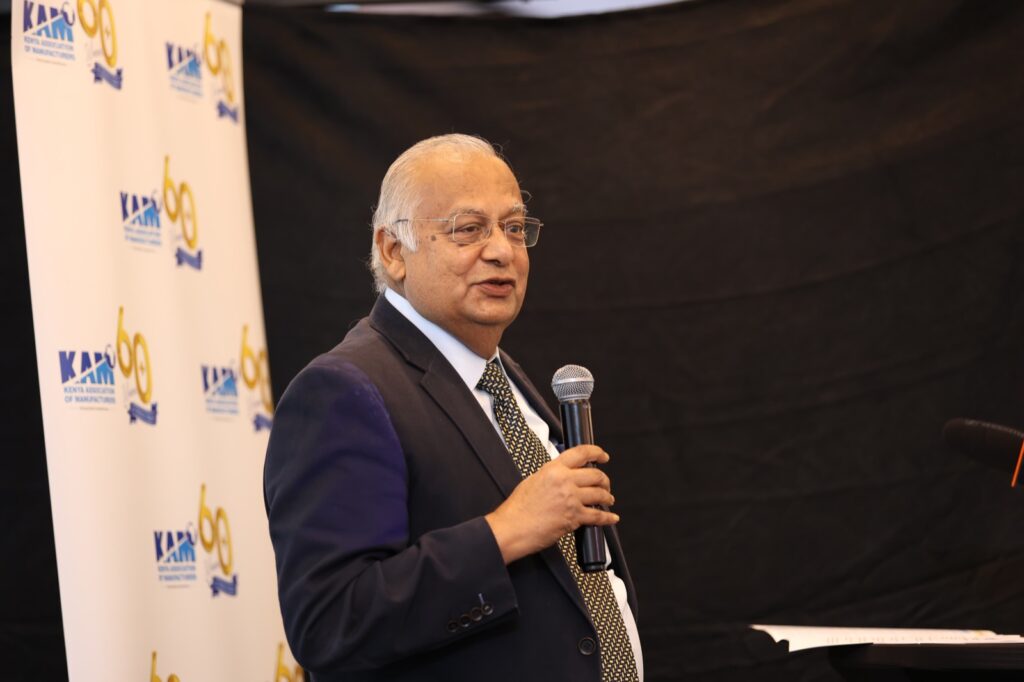Kenya Revs Up Manufacturing Engine with Ambitious Plans to Double GDP Contribution by 2030

Today marks a pivotal moment for Kenya’s industrial landscape as Kenya Association of Manufacturers (KAM) unveils its 2024 Manufacturing Priority Agenda (MPA) and the Agriculture for Industry (A4I) Report.
These groundbreaking initiatives set forth a comprehensive roadmap aimed at enhancing the competitiveness and growth of Kenya’s manufacturing sector while revolutionizing the agricultural landscape to foster sustainable economic development.

The MPA Report offers a strategic blueprint designed to overcome challenges, capitalize on opportunities, and propel Kenya’s manufacturing industry onto the global stage. With Kenya’s manufacturing sector contributing 7.8% to the GDP in 2022, representing a value of Ksh. 3.18 trillion, and generating 352,000 direct jobs, the need to bolster its competitiveness is of necessity.
Speaking during the launch, KAM Head of Policy, Research and Advocacy, Job Wanjohi, emphasized the significance of advancing policies to reset manufacturing and achieve Agenda 20BY30, aiming to elevate the sector’s GDP contribution to 20% by 2030, potentially creating one million direct jobs. Mr. Wanjohi acknowledged the government’s role in achieving milestones such as manufacturers now being able to claim input VAT on KPA charges, the finalization of the National Tax Policy, and the removal of VAT on exported services.
KAM Board Director and Trade & Tax Committee Chair, Bharat Shah, highlighted the challenges hindering progress within the manufacturing sector, including regulatory burden and the high cost and instability of electricity. Mr. Shah urged for decisive action to reduce the regulatory burden and lower electricity tariffs to drive growth and enhance competitiveness. He further added that high tariff rates and erratic supply pose alarming challenges, hindering the sector’s growth and undermining competitiveness.
The Principal Secretary State Department of Energy, Alex Wachira, reiterated the government’s commitment to supporting the manufacturing sector. He highlighted measures such as Renewable Energy Feed-in Tariffs (REFIT), investments in geothermal energy, and preferential electricity rates in Special Economic Zones (SEZs) to ensure reliable and affordable energy access.

Dr. Juma Mukhwana, CBS, Principal Secretary State Department for Industry, emphasized the need for collaborative efforts to overcome obstacles and unlock the sector’s potential.
With Kenya’s global competitiveness ranking improving from 115 in 2020 to 108 in 2021 according to the United Nations Industrial Development Organization (UNIDO), there’s a clear trajectory towards a vibrant manufacturing future. The MPA and A4I reports serve as guiding beacons, outlining comprehensive strategies to scale up Kenya’s manufacturing sector and strengthen the linkages between manufacturing and agriculture.
The MPA is an annual publication that guides KAM’s advocacy efforts with Government and its agencies. This year’s MPA, themed, “Steering economic growth through the manufacturing sector for common good” will drive KAM’s advocacy agenda for the year. It builds on the organization’s efforts to achieve Agenda 20BY30. It is guided by 4 pillars:
Global Competitiveness
Export-led Industrialization
SME Development
Agriculture for Industry





